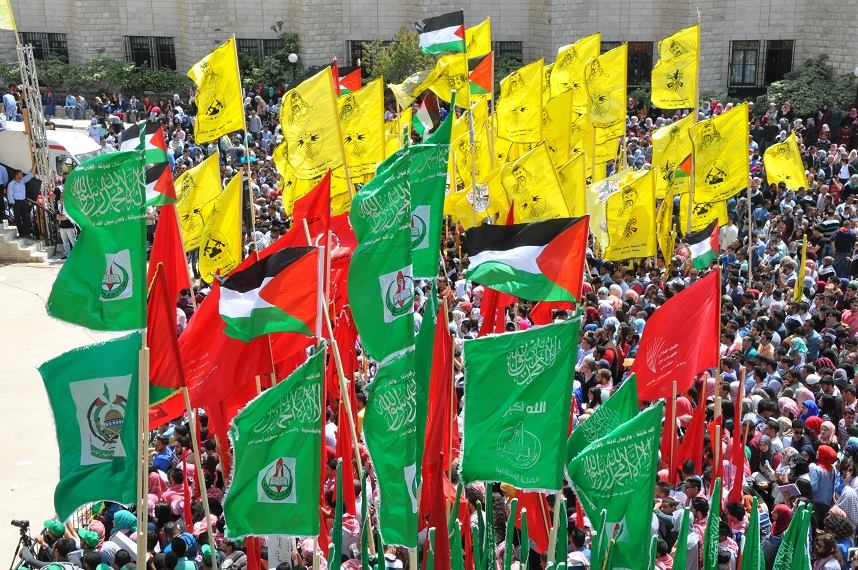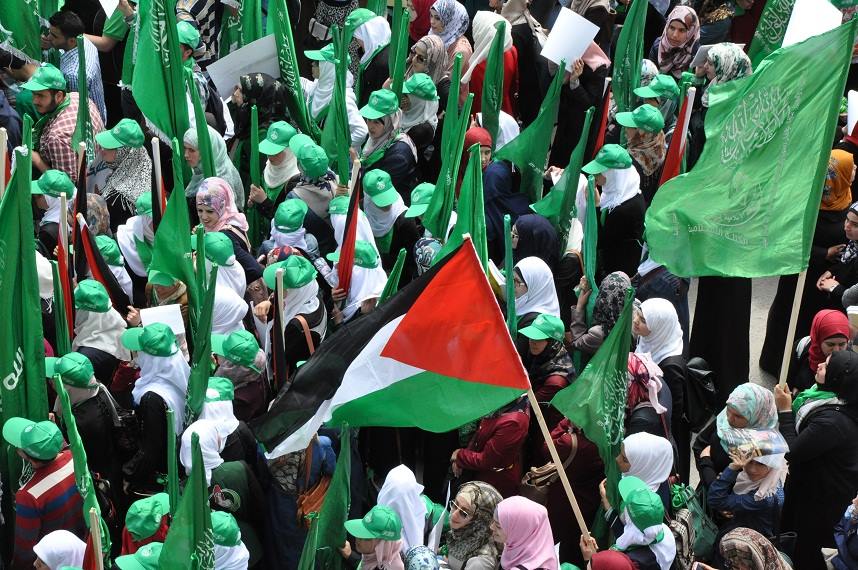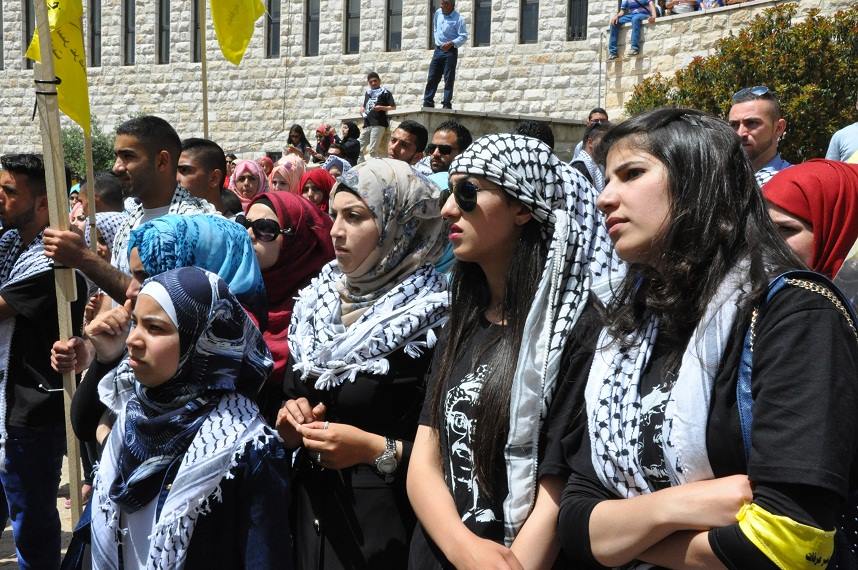Originally published on Ma’an News Agency on April 22, 2015.
RAMALLAH (Ma’an) — Thousands of students at Birzeit University in the central West Bank went to the polls on Wednesday, bringing a Hamas-affiliated political list to victory in student elections widely seen as a barometer for Palestinian public opinion.
The day before the polls, thousands took part in a massive campus debate between the four lists contesting the elections.
The debate was composed of four groups, including the lists affiliated with Hamas, Fatah, and the Popular Front for the Liberation of Palestine (PFLP) as well as a united list of three groups affiliated with the Democratic Front for the Liberation of Palestine, the Palestinian People’s Party, and Fida.
The Hamas-affiliated list triumphed with 26 seats while the Fatah-affiliated list got 19. The PFLP list, meanwhile, received five votes, while the leftist coalition received one.
In total, 6,787 students came out to vote out of a total of 9,000 that were eligible.
Fatah-affiliated students rallied under the “The Martyr Yasser Arafat List” while Hamas-affiliated students rallied under the “Islamic Loyalty List.”
Students from the Popular Front for the Liberation of Palestine were organized under the “Progressive Democratic Students’ Pole,” while the leftist alliance was termed the “Birzeit Student Union.”
During the debate, students waved the flags of each respect list and chanted slogans in support of their respective parties as they waved banners adorned with images of Palestinian martyrs and prisoners from each party.
The images included that of Lina Khattab, an 18-year-old student at Birzeit affiliated with the Popular Front for the Liberation of Palestine currently being held in Israeli prison. She was arrested for “throwing stones” and “participating in an unlawful demonstration” after taking part in a rally with the group in December.
Palestinian student elections are closely watched by political observers because they are seen as a barometer of political sentiments in the absence of parliamentary or presidential elections since 2006.



In that year Hamas came to power in the Palestinian parliament. Due to an international boycott of the group, however, and violence the year after with Fatah-affiliated groups, a political division emerged between Hamas-run Gaza and the West Bank, which is ruled primarily by Fatah through the Palestinian Authority.
Since then, no elections have been held, though the establishment of a unity government in spring 2014 raised hopes that an election could follow.
The victory of the Hamas-affiliated list on Wednesday came as a surprise to observers, as the campus has historically been dominated by Fatah.
Hamas said in a statement released Wednesday evening that the win reflected the party’s strength in the West Bank.
Hamas spokesman Sami Abu Zuhri said that the party’s victory was “evidence that the party is stronger and bigger than all attempts to remove it.”
He said that the bloc’s win highlighted the continued popularity of the “resistance” project, a jab against the Fatah movement’s insistence on engaging in negotiations with Israel that many Palestinian political analysts have lambasted as having failed to produce results.
Hamas’ stance in favor of military resistance to Israel’s nearly 50-year-long occupation of the West Bank and the Gaza Strip was a key issue in the student debate, particularly in the wake of the July-August Israeli assault on Gaza that left more than 2,200 dead.
Despite the high death toll, many credited Hamas with successfully repulsing an Israeli ground invasion and for maintaining pressure through its rocket launches into Israel.
At the same time, Fatah’s continued cooperation with Israel through the Palestinian Authority has hurt its popularity.
Popular opinion polls regularly show the two parties in a neck-to-neck race for support among the wider Palestinian public.